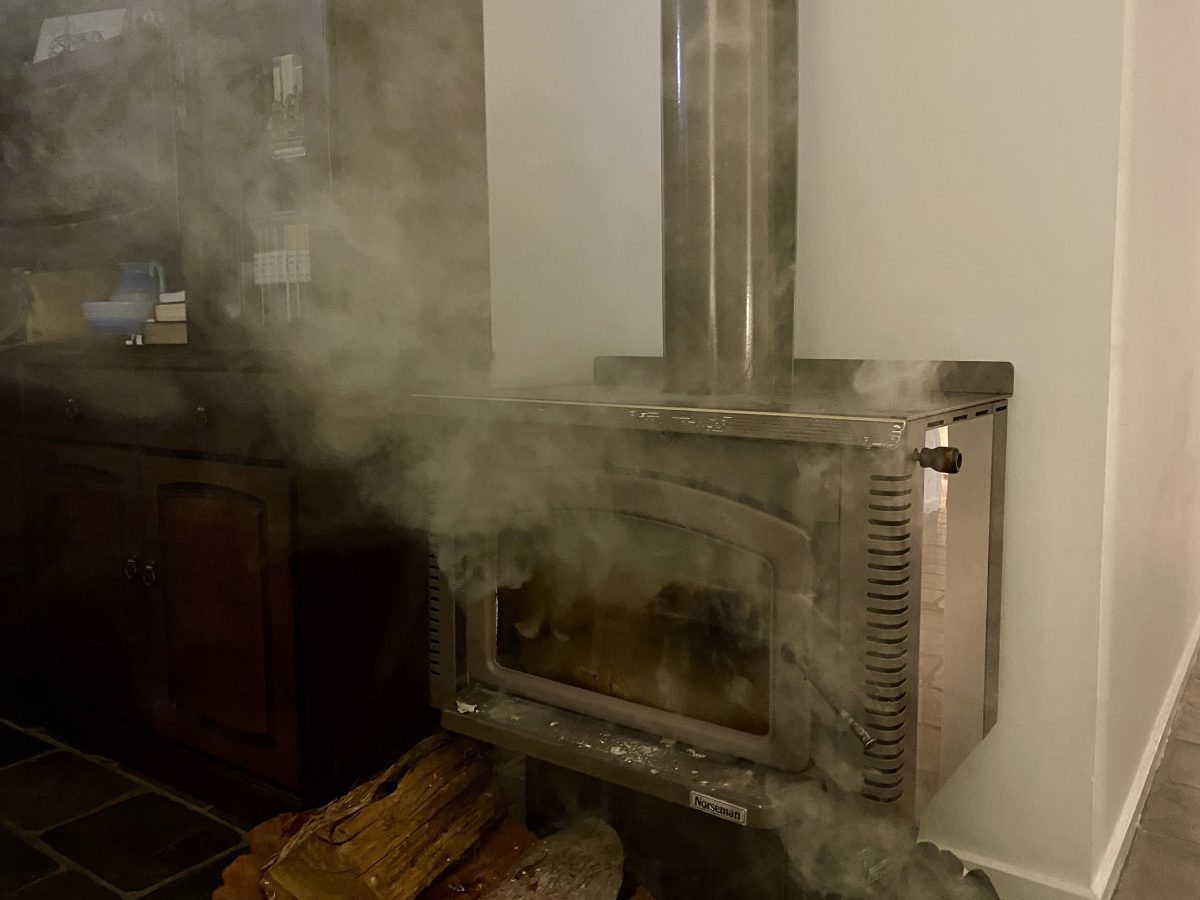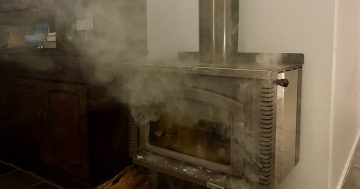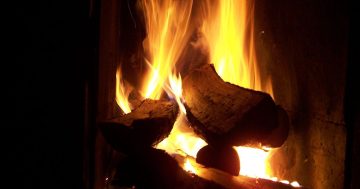
Is the ACT Government right to phase out wood heaters? Photo: James Coleman.
The ACT Government is standing firm on its plans to phase out wood heaters by 2045, despite nearly 4000 people signing a petition for it to be scrapped.
The government announced its plans in August, in line with the transition away from fossil fuels.
It said an extension of the ban on new wood heaters beyond the Molonglo Valley (excluding Wright), Dunlop and East O’Malley to Tuggeranong would improve air quality and reduce pollution.
After the ban was announced, the Australian Home Heating Association launched a campaign calling on the ACT Government to abandon the change, which has now attracted more than 3800 signatures.
General manager Tim Cannon said the ban was short-sighted.
“In the report, it was acknowledged there was a disproportionate amount of smoke attributed to older models,” he said.
“I think they need to look at removing old wood heaters first – that will address the wood smoke issues.”
Mr Cannon said there was a clear difference between older wood heaters and more recent models in terms of emissions, describing them as “like day and night”.
“In the same way that buses and trucks from 20 years ago spewed out diesel exhaust fumes, the modern-day versions produce much less emissions,” he said.
“It’s the older, non-compliant wood heaters that are the big polluters, or contributors, to wood smoke.”
Another argument against banning wood heaters was that their sales have been declining in recent years.
Mr Cannon said this showed some households were not adopting newer models, so banning the installation of new heaters wouldn’t address the wood smoke issue.
“Progressively, the sale of wood heaters in Australia has declined because there are alternative forms of heating,” he said.
“The wood smoke issue is primarily related to the older, non-compliant wood heaters.”
Mr Cannon said an alternative approach could be households using electricity to heat their homes, with a newer wood heater model functioning as a backup.
“When it comes to the impact of the proposed ban, the government has not considered the low operational cost of wood heating,” he said.
“If their only option is to heat their home with electricity, homeowners will be at risk of increased electricity prices.”
ACT Environment Minister Rebecca Vassarotti has hit back, stating the continued presence of wood smoke would continue to impact people unless the government stepped in.
“I would challenge you to locate a Canberran willing to exchange clean air for woodfire smoke,” she said.
“While certain newer models of wood fire heaters may boast improved cleanliness, they are by no means completely smoke-free.”
About 3.3 per cent of Territory households have a wood heater.
But the impacts can vary depending on where you live, as local topography and weather conditions can increase the impact of woodfire smoke.
Ms Vassarotti said the ban was necessary to protect the health of Canberra residents.
“When I announced the government decision to phase out woodfire heaters as part of our electrification pathway by 2045, I was clear in saying we need to confront the reality that the smoke that woodfire heaters emit is a direct source of pollution in our homes, a clear and present danger to the wellbeing of our community, and a looming threat to our natural environment,” she said.
“The report provided by the Commissioner for Sustainability and Environment clearly outlined the detrimental impact woodfire heaters have on both our environment and the health of our citizens.
“While national lobby groups will work to protect the interests of their members, my focus is to protect the health and wellbeing of Canberrans and our local environment.”
She added that given the low number of wood heaters in Canberra homes, there would be minimal added strain to the grid when people made the switch to electricity.
“The government is committed to ensuring our grid continues to respond to the demand brought on by the electrification of our city,” Ms Vassarotti said.

















